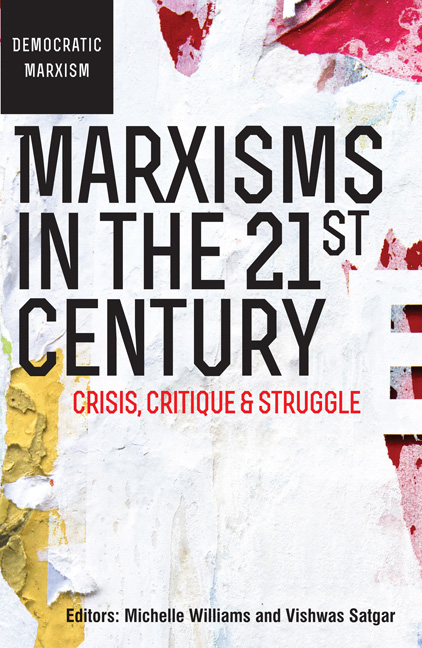Introduction
Published online by Cambridge University Press: 21 April 2018
Summary
Karl Marx's writings on and ideas about social transformation have figured prominently in the Global Left imagination for more than 150 years. Regardless of political hue, scholars, activists and politicos, on the Left and the Right, have engaged with Marx's and Marxists’ ideas in some form or another. Marxism's extraordinary influence has been twofold: as a set of analytical ideas and as an ideology influencing the practices of political movements. History is littered with examples of Marx's impact on the world: Marxist-inspired working-class organisations in Europe and the US in the late nineteenth and early twentieth centuries, European socialist and communist parties’ lineages of Marxism, Marxist–Leninist political organisations of the twentieth century, Latin American dependency theory's influence on development, Marxism– Leninism in the Soviet Union and Marxist-influenced anti-colonial struggles (for example, in Vietnam, Angola and Mozambique). Whereas Marxist ideas have clearly had enormous impact on the world, many of these experiments have inglorious histories, culminating in the demise of the Soviet Union. At the end of the twentieth century a number of factors seemed to converge to mark the end of Marxism's influence on the world: the collapse of the Soviet Union, the Chinese and Vietnamese move to market capitalism, the shift away from class-based issues to the dominance of identity politics in social movements, and the rise of postmodernism in academia with its anti-Marxist conceptions of power, alienation and marginalisation. As a result, by the late twentieth century the relevance of Marxism was under question.
Neoclassical economists and liberal political theorists were triumphant in the post-cold-war 1990s, not only declaring Marxian ideas dead but that there was no alternative to neoliberalism. Unlike what Marx (and the classical Marxists of the Second International) had predicted, the stages of history did not lead to an emancipated communism, but rather perambulated from capitalism to an even fiercer form of capitalism (for some this journey went via ‘state socialism’). Thus, by the turn of the century, it seemed clear that Marxism was, if not already dead, clearly dying an ignominious death. Neoliberal capitalism and the concomitant penetration of the market into all spheres of social life seemed well entrenched for the foreseeable future.
- Type
- Chapter
- Information
- Marxisms in the 21st CenturyCrisis, Critique & Struggle, pp. 1 - 14Publisher: Wits University PressPrint publication year: 2013



